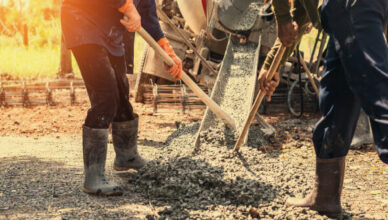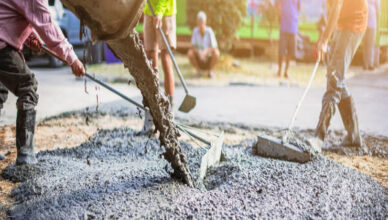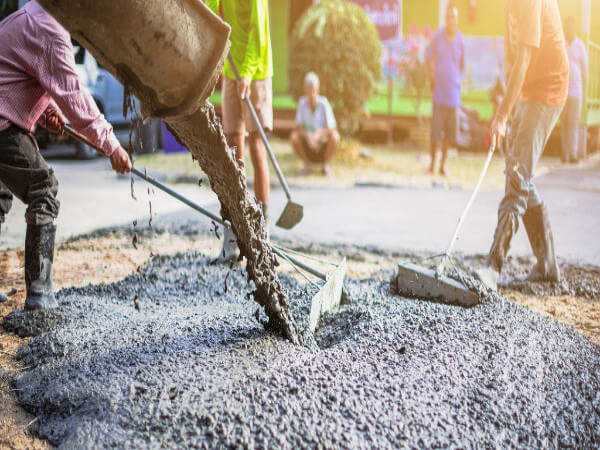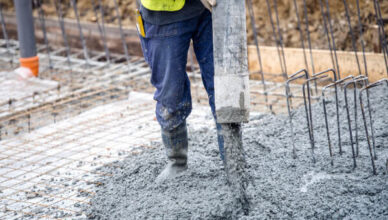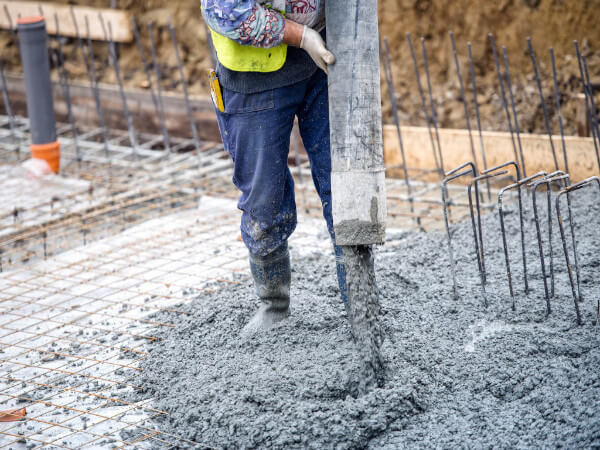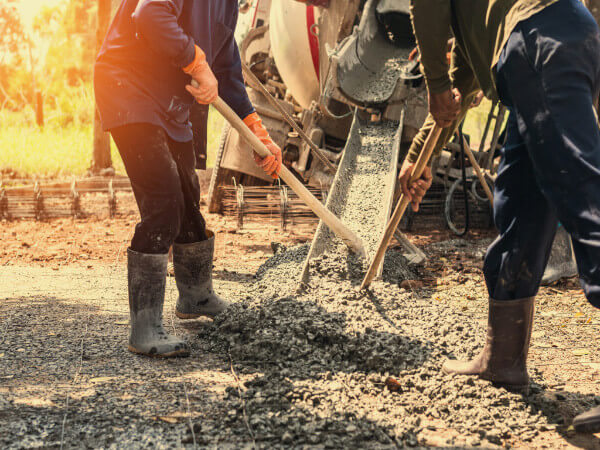
Which type of concrete is right for your home?
The answer to this question can be complicated because there are many different types of concrete available–each with their own benefits.
For example, some people prefer the aesthetic appeal of decorative concrete, while others may want ready mix concrete if they’re on a strict timeline.
In today’s blog post, we will explore all the options available so you can make an informed decision about which type of concrete is best for your project.
Decorative concrete
This is a great choice for homeowners who want to add some extra flair to their property. Decorative concrete can be stamped or stained to create a unique look that will enhance the appearance of your home.
It can also come in pre-designed, etched slabs and is most often used on walls. Not to mention, it’s also very durable, so you can be sure it will last for many years.
Transit mix concrete
If you have a large job that requires high volumes of concrete, then transit mix is the way to go. This type of material is often used when contractors need to pour a large cement slab or foundation in one fell swoop. It’s important to note, however, that most concrete companies will have a minimum order amount for transit mix concrete.
Bulk dry materials
For homeowners looking for a simple and cost-effective option, bulk dry materials can be a great choice. They’re typically used by contractors or homeowners with experience mixing concrete and are perfect for large projects.
Ready mix concrete
Ready mix concrete is ideal for homeowners who don’t have a lot of time to spare. This type of concrete comes premixed, executing your project on a quicker timeline than custom orders like decorative concrete.
For homeowners who are trying to create the perfect blend of strength and beauty for their home improvement projects, ready mix may be the right choice. In most cases, this type of concrete doesn’t need additives or special equipment because it comes ready to go.
Dry ready mix concrete
Dry ready mix is available for purchase in large bags. Simply add water as directed and you’ll have your own concrete in minutes that can be used for various projects. This type of concrete is often used in small projects and is well-known for its simplicity when it comes to mixing and pouring.
Concrete has come a long way over the years, and there are now many different types available to choose from. By taking the time to carefully consider your options, you can find the perfect material for your home improvement projects.
Port Aggregates offers the highest quality ready mix concrete in central and southwest Louisiana. It’s why we’ve been a trusted contractor for over 40 years! Contact us today to request a quote and get started on your residential project. We look forward to helping you build or renovate your home using concrete.
The post Which Type of Concrete is Right for Your Home? appeared first on Port Aggregates.
